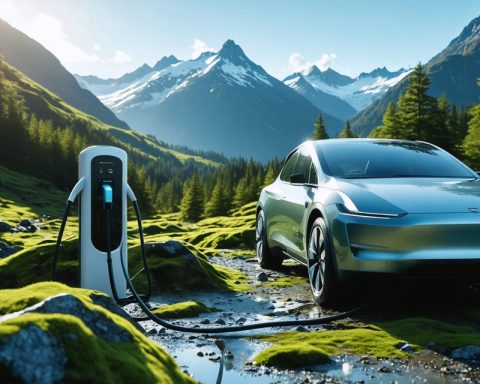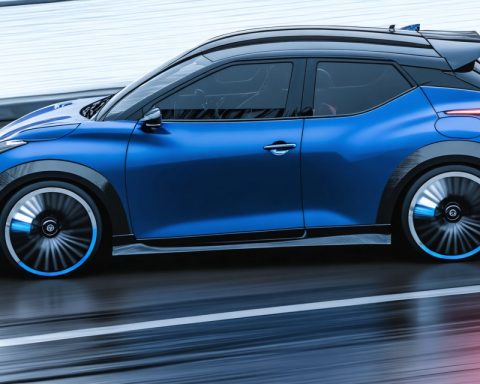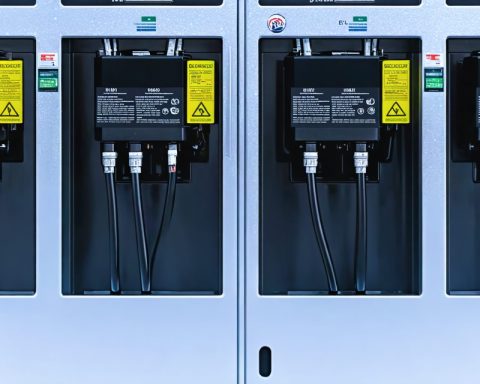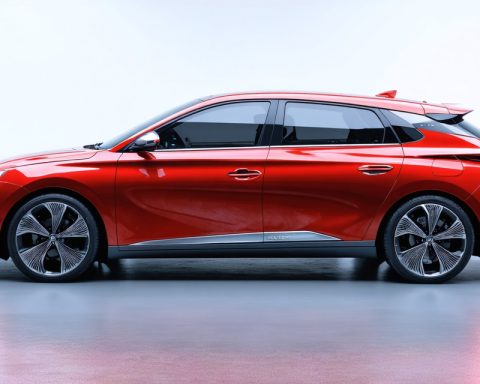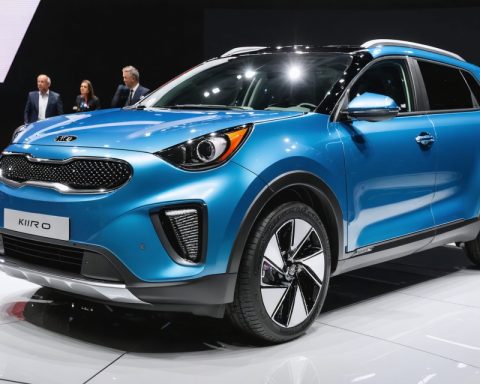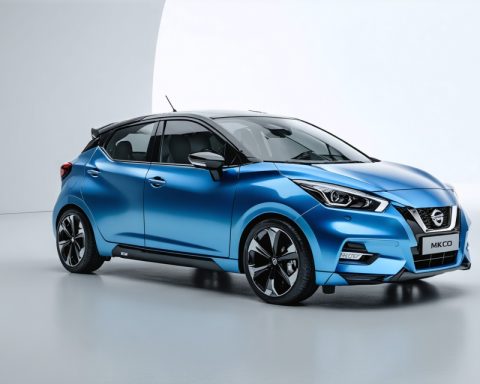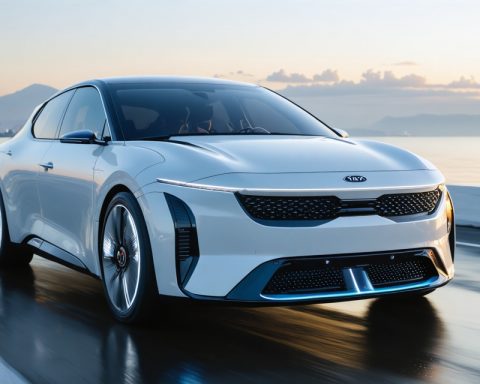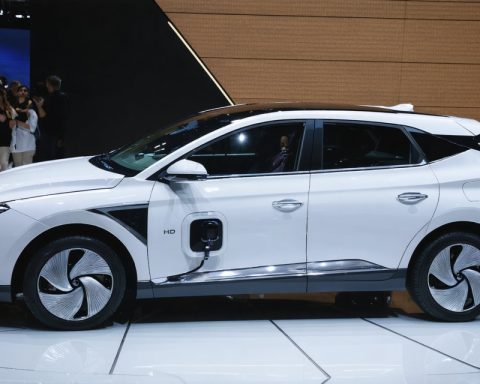- Tax changes for electric vehicles take effect on April 1, introducing additional costs for buyers.
- Buying an electric car before the deadline could avoid a new luxury car tax of £425 per year for vehicles over £40,000.
- All post-2017 electric vehicles will face a £195 annual road tax, impacting affordability.
- Older electric models, registered before 2017, incur a smaller £20 yearly tax.
- Corporate buyers will see benefit-in-kind tax rates increase from 2% to 3%, rising to 5% by 2028.
- Potential buyers should weigh the costs of early purchase against future incentives and discounts.
- Understanding these shifts is essential for financially savvy decisions in the evolving electric car market.
An electric revolution is buzzing through the world of automobiles, yet a looming tax change might unleash a swarm of anxious buyers racing against time. As spring approaches, many are left pondering whether to seize the moment and purchase an electric car before government shifts in tax policies make such vehicles significantly more expensive.
The clock ticks ever closer to the crucial date of April 1, when the friendly face of zero tax on fully electric vehicles morphs into an extra financial burden. The sweet spot now lies in buying before this deadline, especially if you covet a model exceeding the £40,000 threshold. In this luxurious territory, waiting could scorch your wallet with an additional £425 per annum for the first five years due to the newly introduced luxury car tax. Imagine this surcharge atop the standard Vehicle Excise Duty (VED), and the total quickly snowballs to a whopping £2,125 over six years. Such a hefty sum turns the serene hum of electric motors into a harsh reminder of the cost of delay.
The changes, however, are not as black-and-white for frugality seekers purchasing more affordable new electric models. While road tax was once a dormant line item for EV owners, the £195 annual hit becomes unavoidable, applying uniformly to every electric car minted from 2017 onward. Vintage electric vehicles, registered prior to 2017, will carry a lighter load, albeit with a minor £20 annual tax—still a stark departure from the previous free ride.
Not merely individual buyers will feel this pocket pinch, as companies must weigh these changes when updating their fleets. Corporate bean counters will find the benefit-in-kind (BIK) taxation nudging upward from 2% to 3% as of April, more than a mere numerical increment. It marks the start of a steady climb that reaches a 5% apex by 2028, though it remains competitive when juxtaposed against the significantly heftier BIK rates applied to gasoline and diesel siblings.
For those dreaming of electric streets and cleaner mobility landscapes, the decision to act pre-April offers fiscal wisdom, but only if the stars align with intent and budget. The flow of a new shopper wave, drawn by prudent timing, might echo across sales floors. Yet, the tangible lure of discounts could cloud this foresight, rendering the tempting offers of today a mere blip against the cost of delayed action.
As those seeking electric emancipation mull their options, one key takeaway cuts through: Recognize the imminent tax changes and act wisely within your means. Whether ready to plug into the future today or pause for a more compelling incentive, understanding these economic ebbs and flows is crucial.
Meanwhile, the cars themselves continue to shine like silent beacons, their allure undimmed even as their bargain status undergoes recalibration.
Why Now is the Perfect Time to Buy an Electric Car Before Tax Changes Bite
As the landscape of the automotive industry shifts toward electric vehicles (EVs), a significant tax change looms that could soon alter the financial equation for potential buyers. With the deadline of April 1 rapidly approaching, understanding the implications of these changes can save future EV owners from unexpected financial burdens. Below, we delve deeper into considerations for purchasing an electric vehicle before these regulatory adjustments take effect.
Understanding the Tax Changes
1. New Luxury Car Tax for EVs: Beginning April 1, EVs priced over £40,000 will incur an additional annual tax of £425 for the first five years. This adds a total of £2,125 over six years, including the standard Vehicle Excise Duty (VED).
2. Standard VED for Newer Models: All electric cars registered from 2017 onward will face a £195 annual road tax. Vintage EVs registered before 2017 will see a minimal £20 annual tax.
3. Benefit-in-Kind (BIK) Tax Adjustment for Businesses: Companies updating their fleet must consider the escalated BIK tax, growing from 2% to 3% starting April, eventually reaching 5% by 2028. Despite the increase, EVs maintain an edge over higher BIK rates for traditional fuel vehicles.
How-To Steps & Life Hacks
– Pre-Purchase Checklist: Before buying an EV, evaluate your driving needs, charging infrastructure, and available incentives in your area.
– Budget Planning: Calculate total cost of ownership, factoring in future tax obligations, potential savings on fuel and maintenance, and any government incentives.
Real-World Use Cases
– Corporate Fleets: Transitioning to electric fleets can enhance sustainability profiles and benefit from lower BIK taxes compared to fossil fuel vehicles.
– Personal Use: Urban dwellers with access to public charging stations can significantly reduce commuting costs and contribute to a reduction in urban pollution.
Pros & Cons Overview
– Pros: Reduced long-term fuel costs, lower maintenance costs, access to clean air zones, government incentives.
– Cons: Initial purchase price, dependency on charging infrastructure, range limitations for some models.
Controversies & Limitations
– Charging Infrastructure: While EVs are advantageous, the limited charging stations in certain regions can pose a barrier for widespread adoption.
– Battery Degradation: Over time, EVs might experience reduced range due to battery capacity loss.
Actionable Recommendations
– Buy Now: To avoid future taxes, consider purchasing before April 1. This is especially vital if targeting models above the £40,000 threshold.
– Explore Deals: Check local dealerships for promotions and possible manufacturer discounts before the tax changes take effect.
– Schedule a Test Drive: Understanding the driving experience and range capabilities firsthand is crucial for informed decision-making.
For more information regarding electric vehicles and current automotive trends, consider visiting the GOV UK website for official updates and policies.
In conclusion, the impending tax changes make now the ideal time to invest in an electric vehicle, particularly for those looking at high-end models. Acting swiftly can leverage current benefits and minimize future costs, aligning your purchase with both environmental consciousness and economic advantage.

